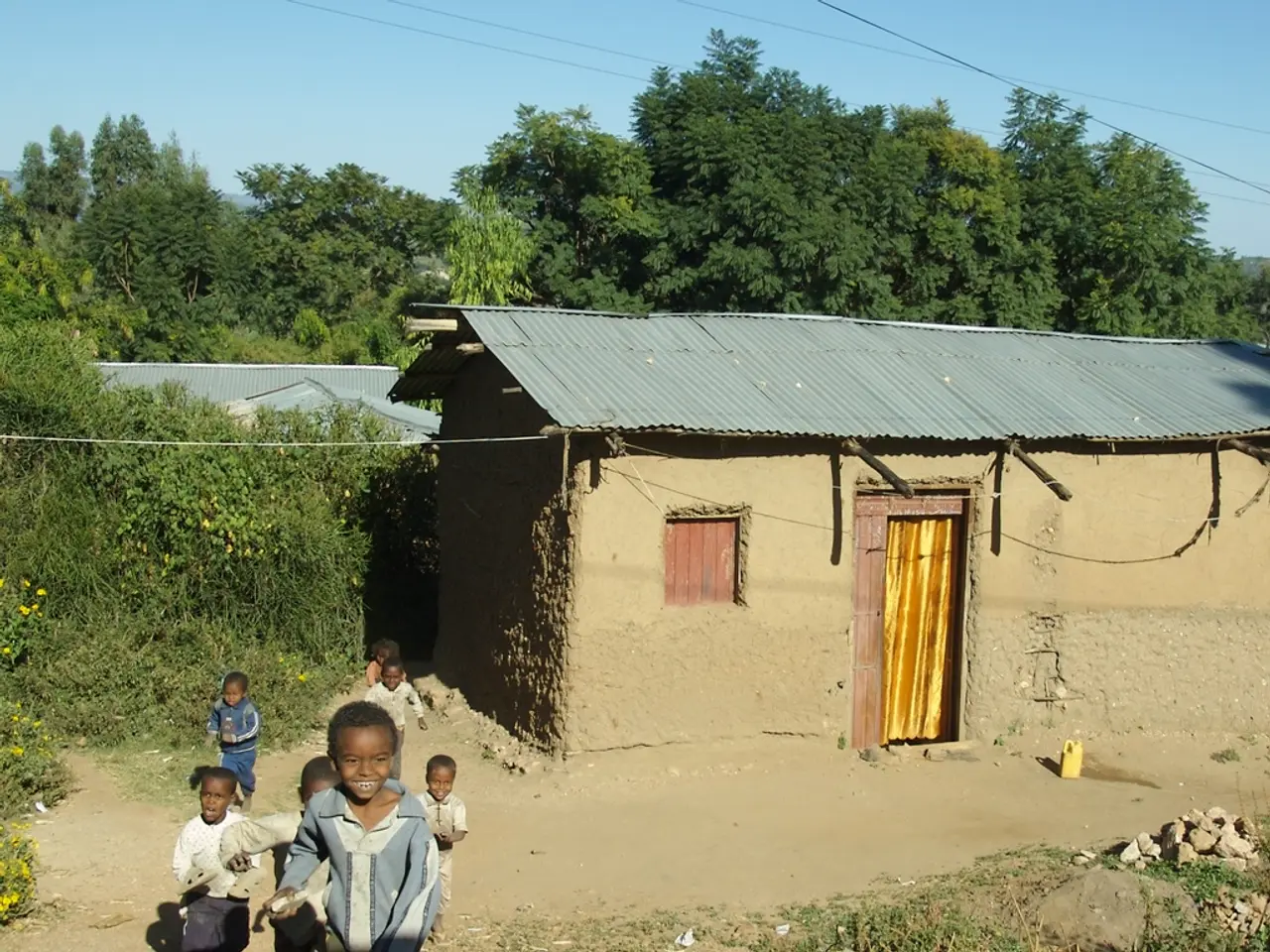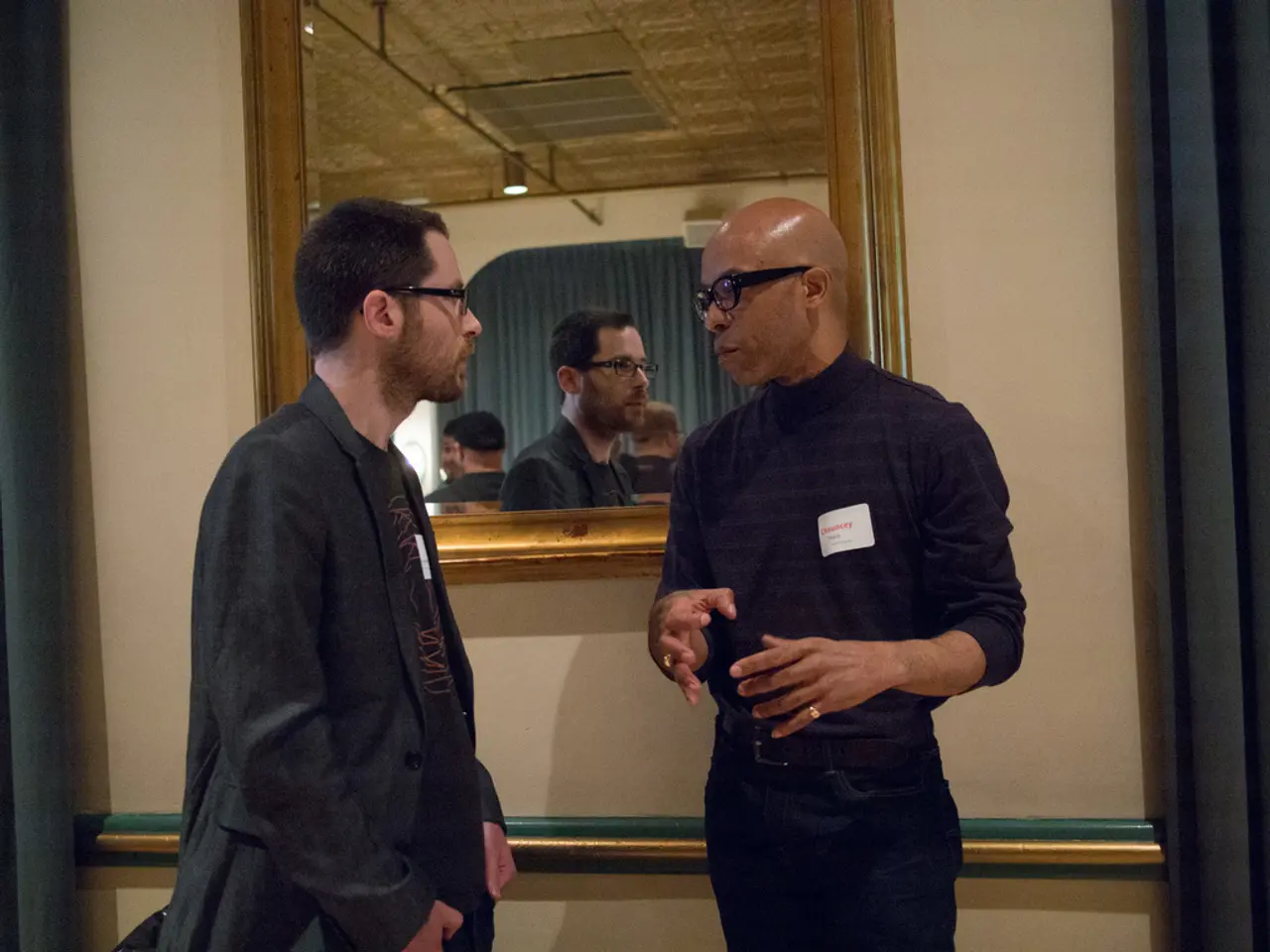Urban Restoration of Compassionate Communities within Modern Urban Settings
Transforming Cities for Young Children and Caregivers: The Van Leer Foundation's Urban95 Programme
The Van Leer Foundation, a leading organisation dedicated to improving urban life, has been working tirelessly for the past decade to make cities more suitable for young children and families. Their latest initiative, the Urban95 Programme, is a groundbreaking approach that focuses not only on the needs of children under 3 years old but also on the wellbeing of their caregivers.
The Urban95 Programme is designed to create and support urban environments that are safe, nurturing, and conducive to early childhood development. It recognises the interconnected needs of young children and their caregivers, understanding that children's wellbeing is deeply linked to that of their parents and guardians.
The programme prioritises the developmental needs of children, defined by height rather than age (95 cm), and designs urban spaces and systems that benefit both children and their caregivers. It integrates caregiver wellbeing as essential to nurturing children’s growth and development.
In partnership with city governments and organisations like the Ministry of Housing and Urban Affairs in India and WRI India, the Urban95 initiative implements practical improvements in urban design and policies that support early childhood development and family wellbeing in selected cities. These collaborations address challenges related to urban living conditions, aiming to create child-friendly and caregiver-supportive public spaces, mobility, and services.
The vision of the Van Leer Foundation includes creating a supportive environment for caregivers in cities, rebuilding "villages of care" within urban areas. This new focus on caregivers' wellbeing is aimed at addressing the disconnection, isolation, and mental health challenges in urban areas that often go unnoticed.
In summary, the Urban95 Programme focuses on improving city life through:
- Prioritising the developmental needs of children under 3 years, defined by height rather than age (95 cm).
- Designing urban spaces and systems that benefit both children and their caregivers.
- Integrating caregiver wellbeing as essential to nurturing children’s growth and development.
- Collaborating with local governments to implement evidence-based, scalable urban policy and planning changes.
The Van Leer Foundation's work continues to aim at improving the overall quality of life in urban areas for young children, families, and their caregivers. Despite the challenges that remain, the Foundation's efforts are a significant step towards ensuring that cities foster real connection and wellbeing for all.
- The Van Leer Foundation's Urban95 Programme is a groundbreaking approach that not only caters to the needs of young children under 3 years old but also considers the wellbeing of their caregivers, recognizing the strong connection between children's wellbeing and that of their parents.
- The Urban95 Programme is designed to create and support urban environments that are conducive to early childhood development, focusing on design that benefits both children and their caregivers.
- This initiative incorporates the wellbeing of caregivers as essential to fostering children’s growth and development, addressing the often overlooked challenges of mental health, disconnection, and isolation in urban areas.
- Collaborations with city governments and organizations, such as the Ministry of Housing and Urban Affairs in India and WRI India, help the Urban95 Programme to implement practical improvements in urban design, policies, and services, addressing issues related to urban living conditions and promoting child-friendly and caregiver-supportive public spaces.
- The vision of the Van Leer Foundation involves creating supportive environments for caregivers within urban areas, rebuilding "villages of care" to improve the overall quality of life for young children, families, and their caregivers, and addressing the challenges that remain in order to ensure cities foster genuine connection and wellbeing for all.




